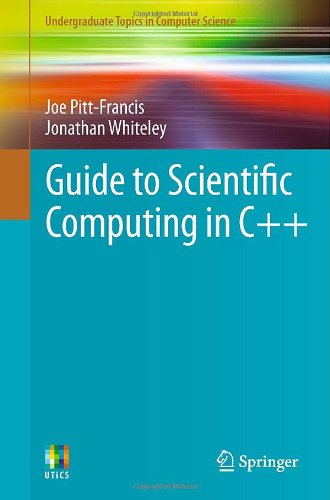

Most ebook files are in PDF format, so you can easily read them using various software such as Foxit Reader or directly on the Google Chrome browser.
Some ebook files are released by publishers in other formats such as .awz, .mobi, .epub, .fb2, etc. You may need to install specific software to read these formats on mobile/PC, such as Calibre.
Please read the tutorial at this link: https://ebookbell.com/faq
We offer FREE conversion to the popular formats you request; however, this may take some time. Therefore, right after payment, please email us, and we will try to provide the service as quickly as possible.
For some exceptional file formats or broken links (if any), please refrain from opening any disputes. Instead, email us first, and we will try to assist within a maximum of 6 hours.
EbookBell Team

4.8
54 reviewsThis easy-to-read textbook/reference presents an essential guide to object-oriented C++ programming for scientific computing. With a practical focus on learning by example, the theory is supported by numerous exercises. Features: provides a specific focus on the application of C++ to scientific computing, including parallel computing using MPI; stresses the importance of a clear programming style to minimize the introduction of errors into code; presents a practical introduction to procedural programming in C++, covering variables, flow of control, input and output, pointers, functions, and reference variables; exhibits the efficacy of classes, highlighting the main features of object-orientation; examines more advanced C++ features, such as templates and exceptions; supplies useful tips and examples throughout the text, together with chapter-ending exercises, and code available to download from Springer.